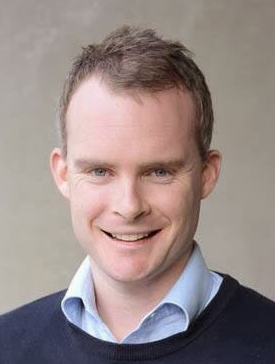I have been in romantic relationships in my life, but I have been sporting single life for a while now. Recently, my friend told me about this awesome Catholic guy she was swooning over. Get this… they met on Valentine’s day!?! (Really, I thought that only happened in movies?)
I was happy for her, but sometimes when I hear about happy couples it is like a dagger in the heart. I can’t help feeling as though I am wearing a sign which reads: “Yup, still single and unloved…AKA: Loser.” I realize this is ridiculous. But even if there is no sign, is it true?
Does being single mean that I’m unloved?
Lovesick Culture
Our culture bombards us with the importance of the romantic relationship, giving us the feeling that all meaning in life is wrapped up in finding that one person who can make us complete.
A few years ago, Twilight groupies could be found across the country chanting “Team Jacob” or “Team Edward.” T-Swift, One Direction, and Bruno Mars fill radio streams with love-struck melodies. Romantic comedies steal our hearts and fuel our desire for more. Standing in line at the grocery store, the headlines of break-ups, make-ups and hook-ups are blaring at us. Even my family joins in the “So, have you met any men?” mantra at times. Our world seems to be obsessed with love.
Created for Love.
So what is this urge for love? Where did it come from, and why is it everywhere we turn?
The answer is that we were made for love.
If we look to Genesis, we see men and women were created for each other. Adam longed for a partner, and had looked through all the creatures on earth for companionship, but when he saw Eve, he proclaimed at last: “Bone of my bone; flesh of my flesh!” (Gen 2:23) We were created to be in communion with each other and in relationship with each other. And this is so good.
We were created for love!
The Ache of Single Life.
But for us single men and women, that doesn’t seem like exciting news. There is an ache within us that we can’t ignore. What do we do? How do we cope? Chocolate? Sure—in moderation. . . . Denial? Nope. . . . Pornography? Even worse. . . . Do we lower our standards and decide that any man with good hygiene will do? . . . Or do we forget love, declaring: “We don’t need ’em anyway!” And grow to be bitter old women with cats?
Maybe not.
The answer as we walk as single men and woman is found in our call to TRUST.
To stay in the ache and surrender in peace knowing that God has a plan for us. He is in control. And if He wanted you to be in a relationship, He would have you there.
What is important to remember is that life-giving love far EXCEEDS the romantic realm. Of course, we all want to have an amazing fun date. Absolutely. But the basis of true romantic relationships is friendship. And I encourage you to see the beauty and joy God has for you in friendship today.
Single and Loving it.
Take some time this week to see the Love that God has given all around you. It doesn’t have to be in a “dating package.” My life as a single woman has been the most life-giving, fun, enriching, exciting time of my life. And this can be it for you, too. Take some time to treasure yourself this week: Go out with your friends; send a sweet cards to your family; watch a fun movie; buy flowers for a co-worker who needs a pick-me-up. And pray for your future spouse, boyfriend, or girlfriend. God has plans for you.
The Lord promises us: Delight in the Lord and He will give us the desires of our heart (Ps 37:4)
Love is all around you! It may not be in a fairytale package. . . . But I have no doubt God has something better in store.
_______________________________
 Involved in ministry for more than 15 years, Mary Bielski has spoken to over 100,000 teens, young adults around the nation at high school and college retreats and conferences, including Steubenville Youth Conferences, Life Teen Inspiration, LA Congress, NCCC, and parish and diocesan rallies. Using funny stories and engaging analogies, Mary draws her audience to the beauty of our Catholic faith, a deeper love for Christ, the Eucharist, and the call to holiness. For more information about Mary and her ministry go to www.marybielski.com.
Involved in ministry for more than 15 years, Mary Bielski has spoken to over 100,000 teens, young adults around the nation at high school and college retreats and conferences, including Steubenville Youth Conferences, Life Teen Inspiration, LA Congress, NCCC, and parish and diocesan rallies. Using funny stories and engaging analogies, Mary draws her audience to the beauty of our Catholic faith, a deeper love for Christ, the Eucharist, and the call to holiness. For more information about Mary and her ministry go to www.marybielski.com.











































